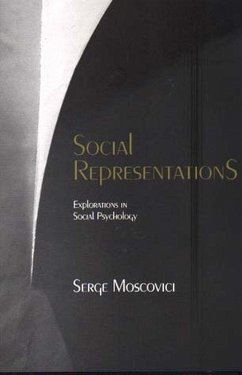
Dialogicality and Social Representations
The Dynamics of Mind

PAYBACK Punkte
59 °P sammeln!
The theory of social knowledge developed in this book is based on dialogicality and the theory of social representations. It is argued that dialogicality, the capacity of the human mind to conceive, create and communicate about social realities in terms of, or in opposition to, otherness, is the sine qua non of the human mind. Social representations are sharply distinguished from mental and collective representations. Being embedded in history and culture, social representations manifest themselves in public discourses and social thinking about phenomena, which touch in some fundamental ways u...
The theory of social knowledge developed in this book is based on dialogicality and the theory of social representations. It is argued that dialogicality, the capacity of the human mind to conceive, create and communicate about social realities in terms of, or in opposition to, otherness, is the sine qua non of the human mind. Social representations are sharply distinguished from mental and collective representations. Being embedded in history and culture, social representations manifest themselves in public discourses and social thinking about phenomena, which touch in some fundamental ways upon social realities, e.g. political, ecological or health related. The theory of social representations places communication and the concept of change in the centre of social psychology. Ivana Marková's book is unique in bringing together the concept of dialogue and social knowledge and will make an important contribution to social psychology, social and human sciences and communication studies.














